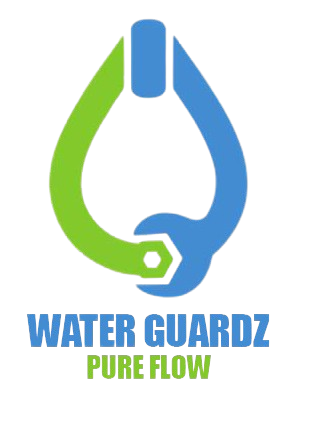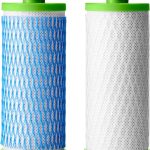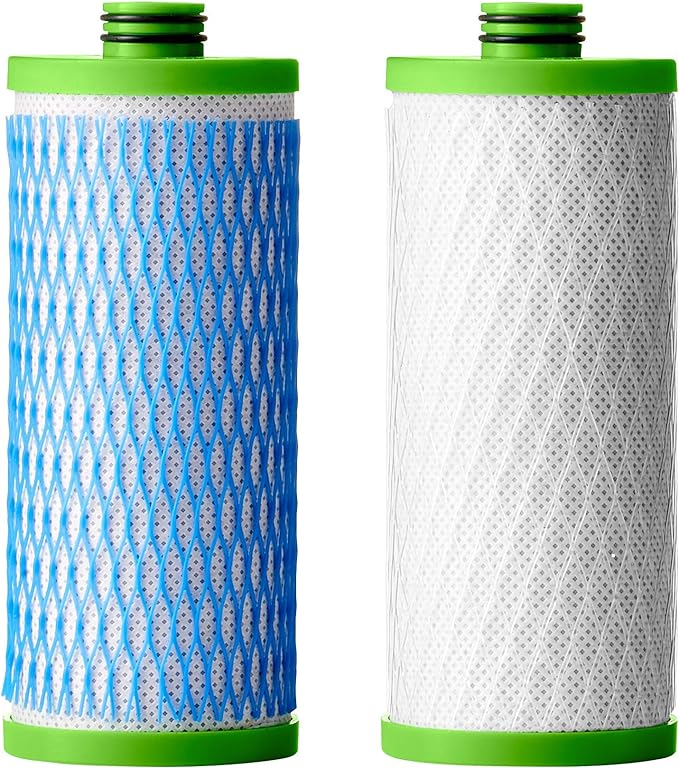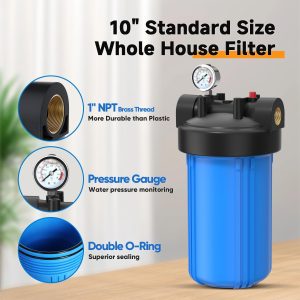Description
-
Sediment filters are water filtration devices designed to remove solid particles such as dirt, sand, rust, and debris from water.
-
Purpose: These filters protect plumbing systems, appliances, and other filtration systems by preventing sediment buildup that can cause clogging and damage.
-
Filtration Mechanism: Water passes through a porous material or mesh that traps particles based on their size while allowing clean water to flow through.
-
Types of Sediment Filters: Common types include spun polypropylene, pleated, string-wound, and mesh filters, each designed for different levels of filtration.
-
Micron Rating: Sediment filters are rated by their pore size, typically ranging from 1 to 100 microns, with lower micron ratings capturing finer particles.
-
Pre-Filtration Role: These filters are often used as the first stage in multi-stage filtration systems, including reverse osmosis (RO) and activated carbon filters.
-
Cartridge vs. Backwashable Filters: Some sediment filters use replaceable cartridges, while others are backwashable and can be cleaned and reused.
-
Gravity vs. Pressure Filtration: Gravity-fed sediment filters are used in some applications, while most residential and industrial systems rely on pressure filtration.
-
Applications: Sediment filters are used in residential homes, commercial buildings, industrial processes, well water systems, and municipal water treatment.
-
Protecting Appliances: By removing sediment, these filters extend the lifespan of appliances like water heaters, washing machines, and dishwashers.
-
Well Water Filtration: Essential for well water users, sediment filters help remove large particles commonly found in groundwater sources.
-
Maintenance Requirements: Filter cartridges need to be replaced periodically, depending on sediment load and water usage.
-
Filter Lifespan: Lifespan varies from weeks to months based on water quality, with high-sediment areas requiring more frequent replacements.
-
Cost Considerations: Sediment filters are relatively inexpensive, making them a cost-effective solution for improving water quality.
-
Environmental Impact: Disposable filter cartridges contribute to waste, but reusable and backwashable options help reduce environmental impact.
-
Future Innovations: Advancements in filter media and self-cleaning technology are improving the efficiency and longevity of sediment filters.
-
Conclusion: Sediment filters play a crucial role in water purification by removing particulate matter, protecting appliances, and enhancing overall water quality.





